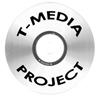T-MEDIA: Difference between revisions
No edit summary |
No edit summary |
||
| Line 19: | Line 19: | ||
*[[Using Digital Video in Professional Development]] | *[[Using Digital Video in Professional Development]] | ||
*You may also find it useful to explore some of the [[DEFT]] resources and case studies of ICT use. | *You may also find it useful to explore some of the [[DEFT]] resources and case studies of ICT use. | ||
|other=These resources derived from the T-MEDIA research project carried out at the Faculty of Education, University of Cambridge, by Sara Hennessy & Rosemary Deaney. They were professionally authored by Caret - the Centre for Applied Research in Educational Technology, at University of Cambridge. | |other=These resources derived from the T-MEDIA research project carried out at the Faculty of Education, University of Cambridge, by Sara Hennessy & Rosemary Deaney. They were professionally authored by Caret - the Centre for Applied Research in Educational Technology, at University of Cambridge. The research was funded by ESRC grant RES-000-23-0825 during 2005-07. | ||
|format=multimedia resources with built-in professional development activities | |format=multimedia resources with built-in professional development activities | ||
|resources=http://t-media.educ.cam.ac.uk/ | |resources=http://t-media.educ.cam.ac.uk/ | ||
Revision as of 07:58, 28 September 2012
Lesson idea. These multimedia tools for professional development present video(i) case studies(i) of secondary teachers using interactive whiteboards(i) in science, English and history and a data projector, laptops and graphing(i) software in mathematics. Each resource presents clips from a series of lessons on one topic area but offers more general ideas applicable to using the IWB in other areas, across a range of student ages.
Teaching approach. The materials aim to stimulate debate and reflection rather than present models of ‘best practice’. They include hyperlinks to video clips from the emerging pedagogical themes, built-in prompts for thinking and discussion, suggested alternative approaches, and analytic commentary from teachers and researchers involved. They illustrate and question how the technologies can be exploited to enhance learning in real classrooms. The resources can be used by individuals or groups of colleagues / student teachers. (edit)
| Resource details | |
| Title | T-MEDIA video case studies of ICT use |
| Topic | |
| Teaching approach | |
| Learning Objectives | To consider
|
| Format / structure | multimedia resources with built-in professional development activities |
| Subject | |
| Age of students / grade | |
| Table of contents |
|
| Additional Resources/material needed | Some downloadable lesson materials are provided |
| Useful information | |
| Related ORBIT Wiki Resources |
|
| Other (e.g. time frame) | These resources derived from the T-MEDIA research project carried out at the Faculty of Education, University of Cambridge, by Sara Hennessy & Rosemary Deaney. They were professionally authored by Caret - the Centre for Applied Research in Educational Technology, at University of Cambridge. The research was funded by ESRC grant RES-000-23-0825 during 2005-07. |
| Files and resources to view and download | |
| Acknowledgement | |
| License | |

